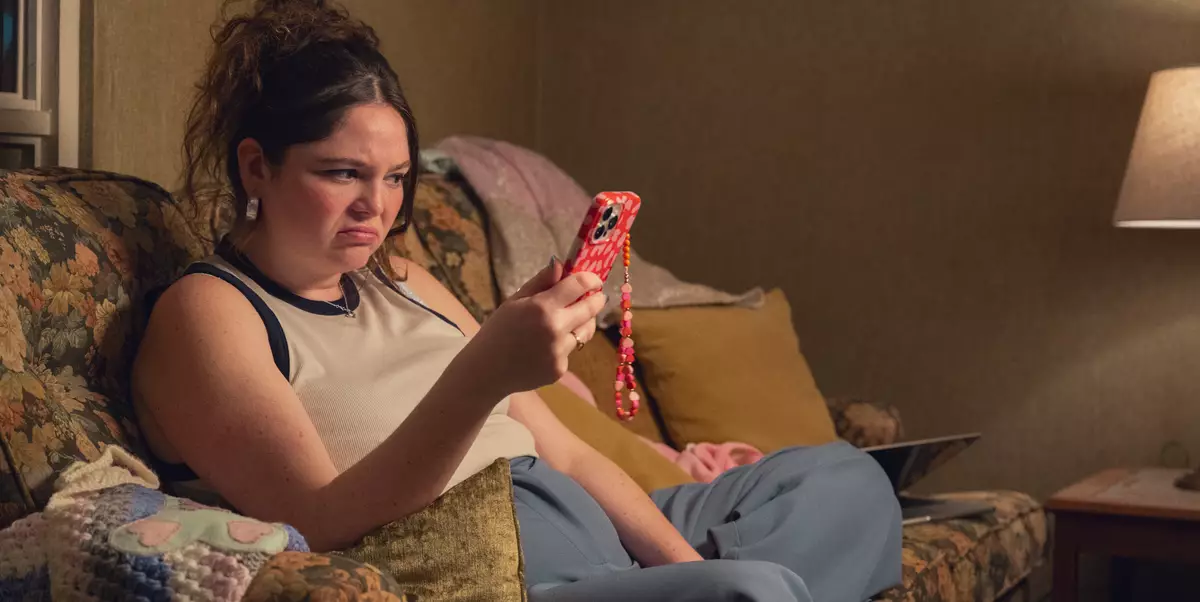The finale of *Too Much* leaves viewers hanging on the edge of anticipation, pivoting from a lighthearted romantic comedy into a more nuanced exploration of commitment. The decision to end season one with Jess (Megan Stalter) and Felix (Will Sharpe) unexpectedly marrying signifies more than just a plot twist; it marks a bold narrative shift toward examining modern relationships in their authentic, tumultuous form. Rather than leaving audiences with a neat, romantic conclusion, the creators tease a deeper dive into the messy intricacies of married life—a landscape riddled with negotiations, compromises, and personal growth.
This pivot makes it clear that *Too Much* has ambitions beyond the typical romantic comedy formula. It aims to dissect the realities of evolving love, especially in an era where instant affection often clashes with long-term commitment. Netflix’s choice to leave the fate of the show uncertain stirs excitement among fans and creators alike; it signals a desire to embrace storytelling that’s layered and honest. The transition from “meet cute” to “marriage story” is not just a narrative choice but a reflection of contemporary relationship dynamics, where love is constellated around continuous negotiation, personal development, and sometimes, conflict.
The Power of Uncertainty: Why Season 2 Could Redefine the Series
The ambiguity surrounding *Too Much*’s renewal presents what might be both a challenge and an opportunity. While Netflix has yet to confirm a second installment, the enthusiasm from the cast and crew hints that the team is eager to continue unraveling Jess and Felix’s journey. This openness about possibilities fuels speculation: will the show embrace the realistic aftermath of marriage, or will it veer into more comedic misadventures? Given the creators’ vision, it’s clear they intend to focus on how newlyweds navigate their evolving identities within the context of their relationship.
Dunham’s comments about the series’ direction reveal her interest in portraying marriage as an ongoing negotiation—an emotional and psychological landscape far richer and more complex than the usual depiction of romance. It’s a deliberate move to challenge the romantic comedy genre, pushing it into territory that embraces vulnerability, miscommunication, and the remarkable process of growing together while acknowledging individual flaws and baggage. This approach makes *Too Much* a series with the potential to stand out, transforming from a light story into a compelling examination of love’s enduring challenges.
Character Dynamics and Future Possibilities
The character arcs built in season one establish a fertile ground for exploring how Jess and Felix’s marriage will confront the baggage of their past relationships and their identities. Each character’s history adds depth, promising intricate storytelling that could expand beyond their immediate relationship. For instance, Dunham’s desire to leave viewers with “lingering questions” underscores her intent to explore unresolved emotional tensions rather than providing tidy resolutions.
Jessica and Felix’s personalities—amusingly bumbling but earnest—serve as perfect vehicles for this exploration. Their flaws and insecurities make them relatable, and their potential to grow within marriage offers a narrative richness that can sustain multiple seasons. Furthermore, the anticipated casting of high-profile actors such as Naomi Watts and Richard E. Grant as family members or friends suggests the series will broaden its scope—delving into the influences, societal pressures, and familial dynamics that shape modern love stories.
The enthusiasm of the cast hints at a collective belief in the series’ potential to mature and deepen. However, the success of this future hinges heavily on the creative direction and Netflix’s support. If *Too Much* is given the chance to evolve, it can challenge viewers’ perceptions of love, marriage, and the messy yet beautiful process of building a life together.
Why *Too Much* Could Redefine Romantic Comedy
In a landscape crowded with predictable love stories, *Too Much* dares to venture into uncharted territory, blending humor with honest reflection. It rejects the fairy-tale notion that love culminates in a fairy-tale wedding, instead acknowledging that real relationships are ongoing negotiations that can be as joyful as they are exhausting. The series’ decision to explore the complexities of a post-wedding life signifies a conscious effort to elevate the genre—a move that could inspire future romantic comedies to shed superficiality and embrace authenticity.
By leaning into the ambiguity and emotional depth, *Too Much* might become a trailblazer, demonstrating that love stories don’t end at the altar—they are just beginning. If the creators are given the creative freedom and platform to explore this vision, the series could redefine how audiences perceive romantic narratives on television.
Whether or not Netflix renews *Too Much*, the series has already made a compelling case for reimagining romance on screen. It reminds us that real love is an ongoing, imperfect journey—one worth watching, analyzing, and perhaps even aspiring to in our own lives.

